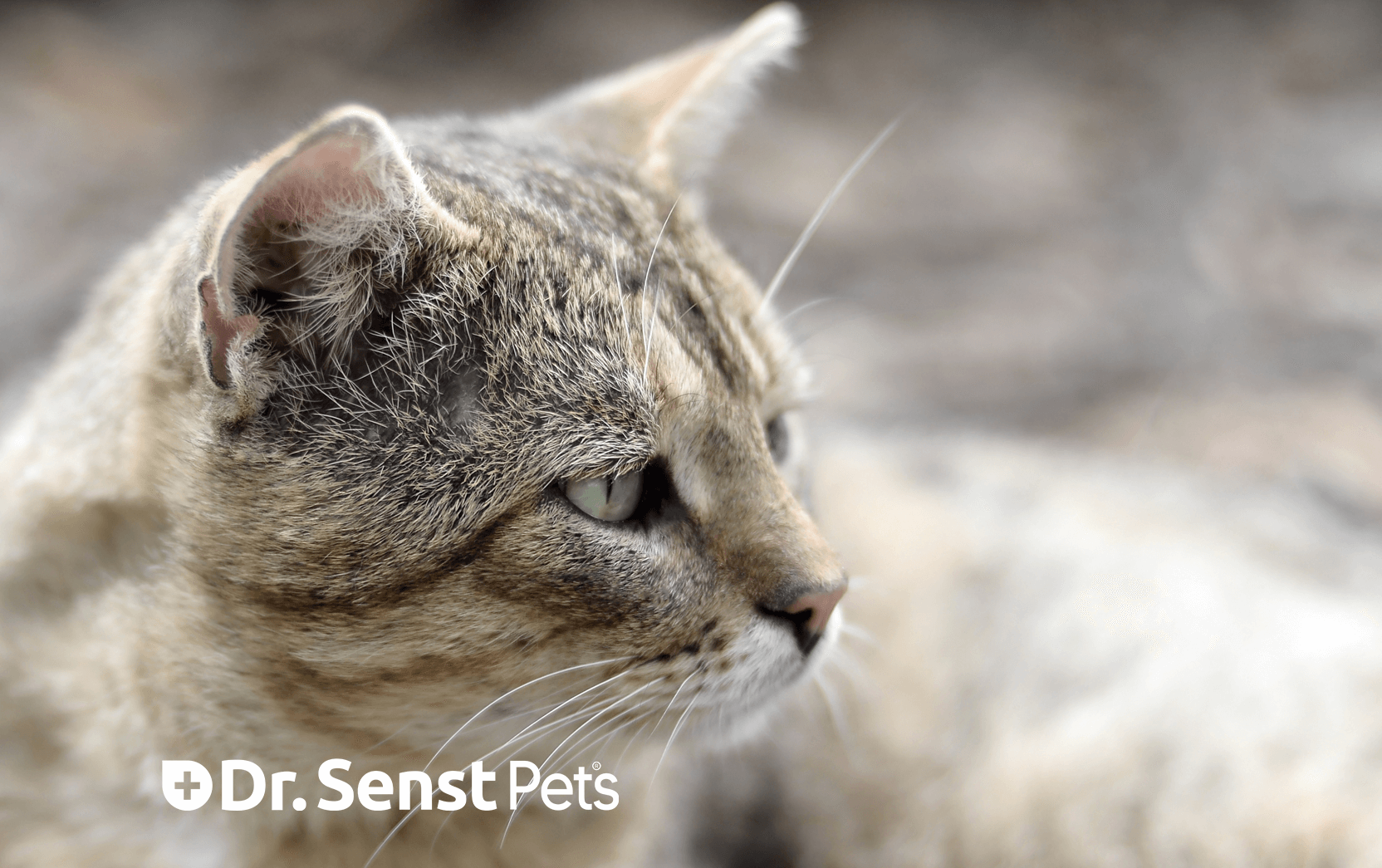
- by Dr.Thilo Senst
Preventing Cat Ear Infections: Proactive Tips for Feline Ear Health
- by Dr.Thilo Senst
Cat ear infections can be painful and uncomfortable for your feline friend, potentially leading to more severe health issues if left untreated. As a pet owner, prevention is key to maintaining your cat’s ear health. By taking proactive steps, you can reduce the risk of infections and ensure that your cat enjoys a healthy, happy life.
In this guide, we’ll explore what causes cat ear infections, how to recognise the signs, and, most importantly, how to prevent these infections with simple, effective tips. We’ll also look at UK statistics on feline ear health and recommend some of the best products to keep your cat’s ears clean and infection-free.
Ear infections in cats are typically caused by a build-up of bacteria, yeast, or ear mites. While cats are generally less prone to ear infections than dogs, they can still suffer from ear problems, especially if they have underlying conditions or allergies.
Early detection is crucial in preventing ear infections from becoming more severe. As a cat owner, it's important to monitor your pet for any changes in their behaviour or signs of discomfort.
If you notice any of these symptoms, it's essential to consult your vet for a proper diagnosis and treatment plan.
| Cause | Description | Prevention |
|---|---|---|
| Ear Mites | Tiny parasites that live in the ear canal | Regular ear cleaning and mite treatment |
| Allergies | Food or environmental allergens | Manage allergies with proper diet |
| Wax Build-up | Excessive earwax can lead to infections | Regular ear cleaning |
| Foreign Bodies | Dirt, grass, or other debris in the ears | Check ears regularly, especially after outdoor play |
| Moisture | Trapped moisture in the ear canal | Dry ears thoroughly after bathing or outdoor exposure |
Preventing cat ear infections starts with a good ear care routine. By following these proactive tips, you can reduce the likelihood of your cat developing ear infections and keep their ears healthy.
One of the most effective ways to prevent ear infections is to keep your cat’s ears clean. Use a veterinarian-approved ear cleaner to gently clean your cat’s ears once a week, removing wax, dirt, and debris. Avoid using cotton swabs, which can push debris further into the ear canal.
If your cat spends time outdoors, check their ears regularly for foreign objects like grass seeds or dirt that can cause irritation and infection. A quick visual inspection after outdoor play can help catch potential problems early.
Moisture in the ears can create the perfect breeding ground for bacteria and yeast. After bathing or exposure to water, be sure to dry your cat’s ears thoroughly with a soft towel.
Ear mites are a common cause of ear infections, particularly in kittens. If your cat has ear mites, use a veterinary-recommended ear mite treatment to eliminate them before they cause further damage.
If your cat suffers from allergies, work with your vet to identify the source and manage their symptoms. Allergies often cause inflammation in the ears, increasing the risk of infections.
Regular veterinary check-ups are crucial for detecting and preventing ear infections. During these visits, your vet can examine your cat’s ears and recommend any necessary treatments or preventive measures.
Think of your cat’s ears like a garden. Just as a garden needs regular watering, weeding, and attention to thrive, your cat’s ears need consistent care to stay healthy. Neglecting ear care is like allowing weeds to grow unchecked in a garden—they can quickly take over and cause problems. Regular cleaning and preventive care help maintain a healthy environment where infections can’t take root.
Preventing ear infections not only keeps your cat comfortable but also avoids the complications that can arise from untreated infections. Here are some key benefits of proactive ear care:
Ear infections can cause significant discomfort for your cat. By preventing infections, you ensure that your pet remains happy and pain-free.
Treating an ear infection can be costly, especially if it requires medication or surgery. Preventive care is a more affordable option that helps avoid these expenses.
Chronic ear infections can lead to long-term damage, including hearing loss. Preventing infections helps maintain your cat’s overall health and well-being.
Q: How often should I clean my cat’s ears?
A: It’s recommended to clean your cat’s ears once a week or as advised by your vet, depending on your cat’s specific needs.
Q: Can I use human ear drops on my cat?
A: No, human ear drops can contain ingredients that are harmful to cats. Always use ear drops specifically formulated for pets.
Q: What should I do if my cat is constantly scratching their ears?
A: If your cat is scratching their ears frequently, it could be a sign of an infection or ear mites. Consult your vet for a proper diagnosis and treatment plan.
Preventing cat ear infections is simple with regular care and attention. By following the tips in this guide—such as regular cleaning, managing allergies, and keeping ears dry—you can protect your cat from painful infections and ensure their ears stay healthy for years to come.
![]()
Enter your details & download our comprehensive 50+ page printable Dr. Senst Pet Care Planner completley FREE! - keep track of all your pet’s needs, from medical history and training to vet visits, grooming, diet, and more!










Share:
Best Over-the-Counter Dog Eye Drops for Fast Relief
Best Hypoallergenic Cat Foods for Sensitive Skin: Top Picks for Relief